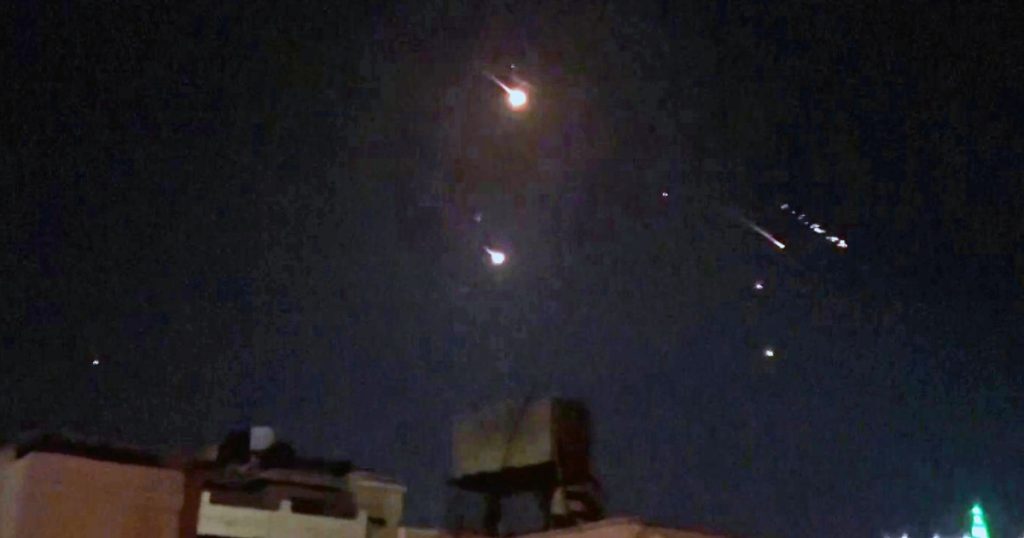The escalating tensions between Iran and Israel have raised concerns about the possibility of a wider war in the Middle East. Iran recently launched a mass drone attack on Israel, leading to fears of further aggression and retaliation. The United States has expressed its support for Israel but has also urged caution in responding to Iran’s actions. There are worries that the conflict could spill over into other parts of the region, drawing in additional countries and increasing the risk of a broader war.
As the situation continues to unfold, there is growing speculation about the potential consequences of Iran’s attack on Israel. Jeremy Bash, a former chief of staff at the CIA and Pentagon, has shared his insights on the matter. He has highlighted the risks of the U.S. becoming involved in the conflict between Iran and Israel, as well as the potential for further escalation if tensions are not de-escalated. The use of drones in the attack adds a new dimension to the conflict, raising concerns about the evolving nature of warfare in the region.
The U.S. government has made it clear that it will not support a counterattack by Israel on Iran in response to the drone strike. This stance reflects the United States’ efforts to maintain stability in the region and avoid being dragged into a broader conflict. President Biden has emphasized the importance of diplomatic solutions and has called for restraint from all parties involved in the conflict. However, the situation remains volatile, with both Israel and Iran exchanging threats and escalating tensions.
The ongoing conflict between Israel and Iran is further complicated by the involvement of other countries and allies. Israel has received support from the U.S. and its allies in blocking Iran’s drone attack, highlighting the complex web of alliances in the region. The potential for a wider war in the Middle East raises concerns about the impact on civilians and the humanitarian crisis in the region. The recent violence in Gaza and other parts of the region has already resulted in significant casualties and destruction, further underscoring the need for a peaceful resolution to the conflict.
The exchange of threats between Israel and Iran has heightened fears of a broader war and the potential for further violence in the region. The conflict between the two countries has deep historical roots and is fueled by longstanding animosities and geopolitical considerations. The involvement of outside actors, such as the United States and its allies, adds another layer of complexity to the situation. As tensions continue to rise, there is a pressing need for diplomatic efforts to de-escalate the conflict and prevent a wider war in the Middle East.
The situation in the Middle East remains fluid and unpredictable, with the possibility of further escalations and violence looming large. The use of drones in the recent attack on Israel has underscored the evolving nature of warfare in the region and the challenges of addressing asymmetric threats. The international community, including the United States, has a crucial role to play in mediating the conflict and promoting a peaceful resolution. As the crisis continues to unfold, it is essential for all parties involved to prioritize diplomacy and dialogue to prevent a wider war and mitigate the humanitarian impact on civilians in the region.


